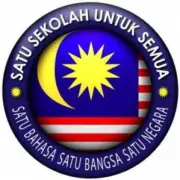Prime Minister Najib Abdul Razak’s official visit to Germany is a major boost for bilateral ties, trade and investment climate between Malaysia and Germany, which has a population of about 80.6 million and is the world’s fourth largest economy.
The visit gave both existing and potential German investors in Malaysia the opportunity to voice out their opinions, challenges and suggestions directly to the country’s premier.
“They (businesses) were very pleased to be given the opportunity to engage directly with the head of the government. It demonstrates our commitment to further encouraging their businesses in Malaysia,” said Malaysian Investment Development Authority (Mida) chief executive officer Azman Mahmud.
Germany is Malaysia’s largest investor from the EU. There are a total of 400 German companies in Malaysia. In the first six months of 2016, German companies invested a total of RM6.44 billion in Malaysia. Over the last 10 years, total investments have totalled RM35 billion.
The businesses were very happy with the remarks and assurances given by the prime minister on providing the right business environment for them, he told Bernama on the sidelines of the prime minister’s three-day official visit which took off with a one-hour closed door dialogue session with top businesses.
This is Najib’s first visit as the country’s prime minister since taking office in 2009. His visit was on the invitation of German Chancellor Angela Merkel.
Both leaders had a bilateral meeting on Tuesday.
Companies participating in the dialogue included Atotech, AWS Schafer, BMW, Daimler, Osram, Volkswagen, Infineon, Bombardier Transportation, Ensinger, B Braun, Green Sugar and Biesterfeld International.
Besides the dialogue session, the prime minister also had bilateral meetings with XFab chief executive officer Rudi De Winter, Muhlbauer president Josef Muhlbauer, BMW Group (Munich) senior vice president (Asia Pacific & South Africa) Hendrik von Kuenheim, and Aerodata AG director strategic business development Dr Manfred Haverland.
Najib, who is also finance minister, said about RM1.5 billion in potential future investment was revealed by companies he met during the dialogue session and bilateral meets, mainly in the semiconductor and machinery sector.
Their intention for new investment and re-investment demonstrates their confidence level in the country’s attractiveness and stability, he said.
Azman said besides investment-related issues, businesses involved in the automotive sector were also keen to know about the country’s National Automotive Policy.
“They wanted to know the future direction of it and the adoption of Euro 5 and energy efficient vehicles,” he said.
Najib said the government would continue its efforts in making Malaysia the most attractive investment destination in South-East Asia and constantly encouraging existing investors to re-invest in the country.
Keen to draw mid-sized manufacturers
During his meeting with the business community, he also announced that besides the multinational companies, Malaysia is now keen to also attract the country’s mid-sized manufacturers.
Accounting for a substantial number of companies and known collectively as “Mittelstand”, they are the backbone of the economy, supplementing the bigger well-established industrial and manufacturing giants.
Najib believes that Malaysia’s small and medium enterprises can learn much from German mid-sized companies especially in terms of their entrepreneurial spirit, their competitive strategies and their adaptation and innovation in advanced technology.
On the last leg of the three-day visit, Najib went to a port city in the state of Mecklenburg-Vorpommern, which is about 200km from the capital, Berlin.
Mecklenburg-Vorpommern is the sixth largest German state by area and the most thinly populated state.
He also went to Wismar, where Genting Hong Kong Ltd is managing three shipyards it acquired in Mecklenburg-Vorpommern last year for RM1.04 billion.Genting has since renamed the shipyards as MV Werften and will focus on building large new cruise ships.
He said the venture in Mecklenburg-Vorpommern through the acquisition of the shipyards paves the way for more investments by Malaysian companies in the state.
In further fostering Malaysia-Germany relations, the prime minister expressed Malaysia’s strongest interest in hosting the 16th Asia Pacific Conference of German Business in Kuala Lumpur in 2018.
“We hope it will materialise,” he added.
– Bernama







All ahead, full
The progressive economic growth since Prime Minister Najib’s ETP (Graphic by The Malaysian Insight)
Prime Minister Dato’ Sri Mohd. Najib Tun Razak is commanding the vessel ‘Federation of Malaysia’ steaming in full and moving forward, now that the political storm base on fallacies caused by Opposition are being unravelled one by one and nothing should any longer be in obstacle.
NST GEIC Dato’ Jalil Hamid’s column:
And the story about Malaysia Vision Valley launched by Prime Minister Najib, the new economic corridor for Central Semenanjung:
The bullishness of the Malaysian economy the past twelve years, substantiated by growth in the capital financial and debt markets and commerce, is the evidence of sound economic management and plan.
Naturally, a stable Federal Government is the enabler for the economic growth and drive.
It is reflective in Prime Minister Najib’s Economic Transformation Plan launched in 2010 where Malaysia would be brought to a high income nation. Within four years, the GNI per capita had risen by 35% and the expansion is substantive.
The growth of public-private investment (Graphic by PEMANDU)
The fact is that, the objective is progressively closer despite global economic crisis 2014-5, which the nation is not spared. The steady angle of growth of public-private investment year-on-year is evidently clear the confidence of the commercial and financial sector.
The central bank is bullish but prudent in their projection of the Malaysian economy.
The Star story:
It is intersting to note that the economy is expected to record growth on productivity and not just the price of oil is at the neighbourhood of USD50 per barrel. The demand growth is also expected to increase and this is important for the domestic economy.
The fact is that, the Malaysian economy is set to be slightly bullish and signs of that is reflective in the strengthening of Ringgit against US Dollar.
Prime Minister Dato’ Sri Mohd. Najib Tun Razak receiving King Salman Al Saud of Saudi Arabia for the latter’s official visit to Malaysia (NST photo)
Prime Minister Najib is forging better ties with global leaders and new trade opportunities are being opened for Malaysian firms.
Recently, the visit of Saudi and Bahraini Kings and Japanese Crown Prince and Prime Minister Najib’s visit to India and China fostered many investment deals, on top of global geo political matters.
The Straits Times story:
So was when he visited Germany nine months ago and earned remarkable grounds.
Malaysiakini story based on Bernama report:
Prime Minister Najib’s upcoming working visit to China is the follow through.
It is really ashamed if his desire and drive to expand and improve the economy, gross national income and income per capita is being hindered by very unproductive over politicking.
More over, if Prime Minister Najib has to pander to Oppositions’ strategy of demonisation compelete with manipulation, fabrication, deception and slander to maintain or gain new political grounds.
Otherwise they are unable to unseat him and the Barisan Nasional administration.
For the record, when Prime Minister Najib inherited the reigns of the nation from Fifth Prime Minister Tun Abdullah Ahmad Badawi in April 2009, it was not in calm waters and sunshine.
The world was still in the shock of the subprime financial fiasco which almost brought the United States banking system to its knees. Globally, it affected the free market.
By the time Prime Minister Najib got to grasps of things and issues, he started to plan and unleash his ways of making the change. He saw the opportunities await the nation and her people, its potential and most of all, the challenges and limiting factors.
Prime Minister Najib had big plans to optimise all resources available for realise the potentials to the max and he and his administration planned strategies and unleashed various transformation programs designed for multipronged attacks and objectives.
These transformation programs simultaneously being implemented bit by bit saw progress and positive results. However, during the days of making hay in the sun, suddenly unforeseeable storm appeared on our coast.
2015-16 saw Prime Minister Najib at the helms weathering one of the global worst economic woes in more recent times when the price of crude oil fell nearly USD80 per barrel in a very short span of time.
This is coupled with major currencies saw significant drop against US Dollar, including China Renmimbi, Japanese Yes, Euro and British Pound Sterling, which had contagion effect on world trade, investments and the elastic financial and capital markets volatility.
This was also the most challenging period in Prime Minister Najib political career when he was at arms against being toppled by Fourth Prime Minister Tun Dr. Mahathir Mohamad, who teamed up with the Oppositions and Neo Con Jewsih control foreign media lashing out incessant manipulated, fabricated, deceived and slanderous voracious attacks.
Now that both political and global economic storms have subsided, the vector that Prime Minister Najib has set on is forward an up, as in the words of an infamous seaman Captain Edward Smith 105 years ago in his order to steam full ahead, “Time to stretch her legs”.
In the final analysis, for average Malaysians it is better of for Prime Minister Najib to be given more opportunity to work harder and space. It is nothing but to expand and extend what he had planned, under planning and/or being implemented, for the betterment of the nation.
- Economic analysis and commentary
on May 5, 2017 at 15:00 Leave a Comment